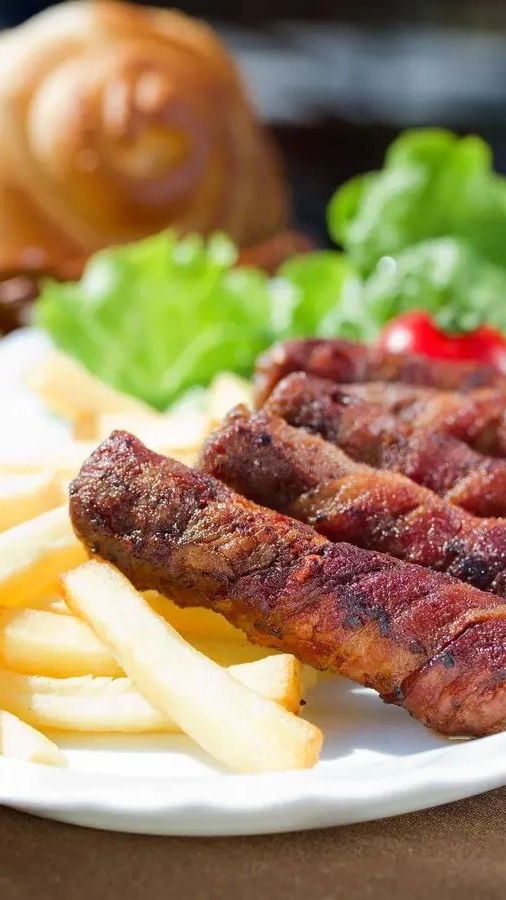A Sérvia, uma joia europeia menos explorada, oferece um rico mosaico de história, cultura e natureza. Com cidades vibrantes, paisagens deslumbrantes e uma culinária deliciosa, é o destino perfeito para viajantes em busca de algo novo. Vamos explorar as principais atrações, pratos imperdíveis e a melhor época para visitar este país incrível.
Principais atrações na Sérvia
Fortaleza de Belgrado
Localizada na confluência dos rios Danúbio e Sava, a Fortaleza de Belgrado é um dos marcos mais emblemáticos do país. Além de sua importância histórica como fortificação militar, o complexo abriga museus, jardins e vistas panorâmicas imperdíveis. Ideal para quem ama história ou simplesmente deseja apreciar vistas deslumbrantes.

Templo de São Sava
Um dos maiores templos ortodoxos do mundo, o Templo de São Sava impressiona pela arquitetura grandiosa e riqueza de detalhes internos. Além de centro espiritual, é um símbolo da identidade nacional sérvia.

Fortaleza de Kalemegdan
No coração de Belgrado, esta fortaleza milenar testemunhou séculos de história. Além das muralhas imponentes, o complexo abriga parques arborizados, museus e vistas panorâmicas do encontro dos rios. Perfeito para um passeio histórico e paisagístico.

Igreja de São Marcos
Com sua fachada em tijolos vermelhos, esta igreja ortodoxa é um exemplo da arquitetura sérvia. Seu interior ricamente decorado e a atmosfera serena proporcionam uma experiência espiritual única.

Museu Nikola Tesla
Uma homenagem ao gênio da eletricidade, este museu interativo permite explorar as invenções e a vida do famoso inventor. Uma experiência fascinante para todas as idades.

Praça Central de Novi Sad
O coração pulsante da segunda maior cidade sérvia, a praça é rodeada por prédios históricos, cafés charmosos e uma atmosfera vibrante. Local perfeito para sentir o pulso da vida urbana.

Bairro Zemun
Este bairro pitoresco à beira do Danúbio encanta com ruas de paralelepípedos, casas coloridas e a Torre Gardos, que oferece a melhor vista panorâmica da região.

Fortaleza de Petrovaradin
Conhecida como “Gibraltar do Danúbio”, esta fortaleza do século XVII abriga o famoso festival EXIT e oferece vistas deslumbrantes do rio e da cidade de Novi Sad.

Parque Nacional Kopaonik
O maior centro de esportes de inverno da Sérvia, com pistas para todos os níveis, paisagens alpinas e ótimas infraestruturas turísticas. No verão, é perfeito para caminhadas e mountain bike.

Zlatibor
Estância de montanha que combina natureza preservada, ar puro e tradições sérvias. No inverno, é um dos melhores destinos para esqui na região.

Parque Nacional Tara
Para os amantes da natureza, o parque oferece cânions, florestas virgens e o famoso “Drina Canyon”, um dos mais profundos da Europa. Ideal para rafting, caminhadas e observação da vida selvagem.

Pratos típicos para experimentar
Ćevapi (espetos de carne grelhada)
O prato mais icônico da Sérvia, feito com carne moída grelhada, geralmente servido com cebola, pão somun e kajmak (laticínio cremoso).

Pita e Burek
Massa folhada recheada com carne, queijo ou espinafre. Uma refeição rápida e saborosa, perfeita para qualquer hora do dia.

Salada de Creme Azedo (Srpska Salata)
Feita com iogurte, pepino, alho e endro, é um acompanhamento refrescante para carnes grelhadas.

Kajmak
Um laticínio cremoso e levemente ácido, servido como acompanhamento para carnes ou pães. Uma iguaria que conquista paladares.

Mlinci
Massa fina cozida e desfiada, servida com carnes assadas e molhos. Uma combinação perfeita de texturas e sabores.

Suvo Meso (Carne Seca)
Uma iguaria da região oeste, a carne seca e defumada é perfeita como aperitivo ou acompanhamento de cervejas artesanais.

Ajvar
Pasta de pimentão e berinjela assados, servida como aperitivo ou acompanhamento. Um clássico da culinária balcânica.

Sarma
Rolinhos de repolho ou folhas de videira recheados com carne e arroz, cozidos em molho de tomate. Conforto em forma de prato.

Melhor época para visitar
O clima continental da Sérvia oferece estações bem definidas:

Primavera (Março-Maio)
Temperaturas amenas (10°C a 20°C), paisagens floridas e a Festa da Primavera em Belgrado. Período ideal para caminhadas e turismo cultural.
Verão (Junho-Agosto)
Clima quente (20°C a 30°C), perfeito para festivais como o EXIT. Alta temporada turística.
Outono (Setembro-Novembro)
Foliagem dourada, temperaturas amenas (10°C a 20°C) e colheitas de frutas. Perfeito para fotografia e enoturismo.
Inverno (Dezembro-Fevereiro)
Neve nas montanhas (0°C a -5°C), ideal para esportes de inverno em Kopaonik e Zlatibor. Mercados de Natal encantadores.



















